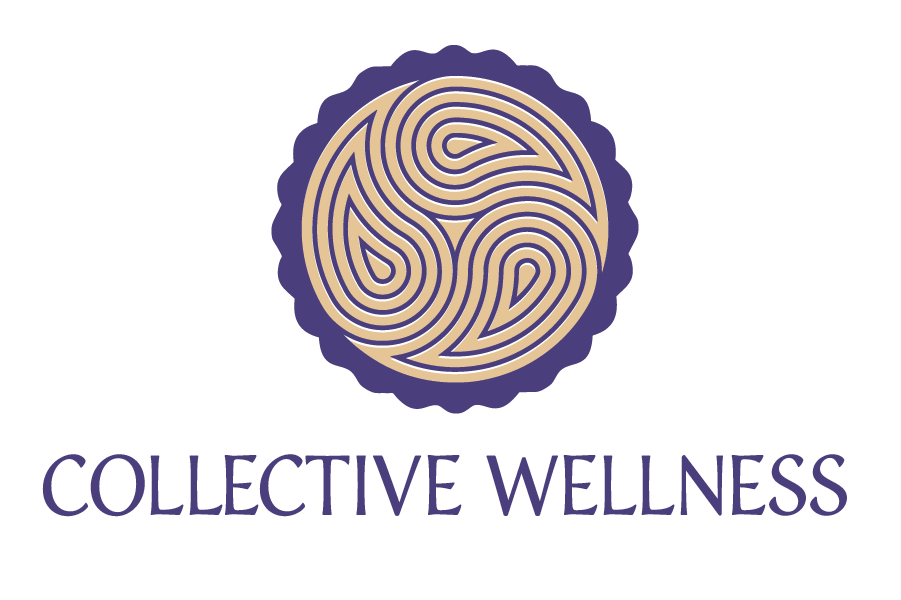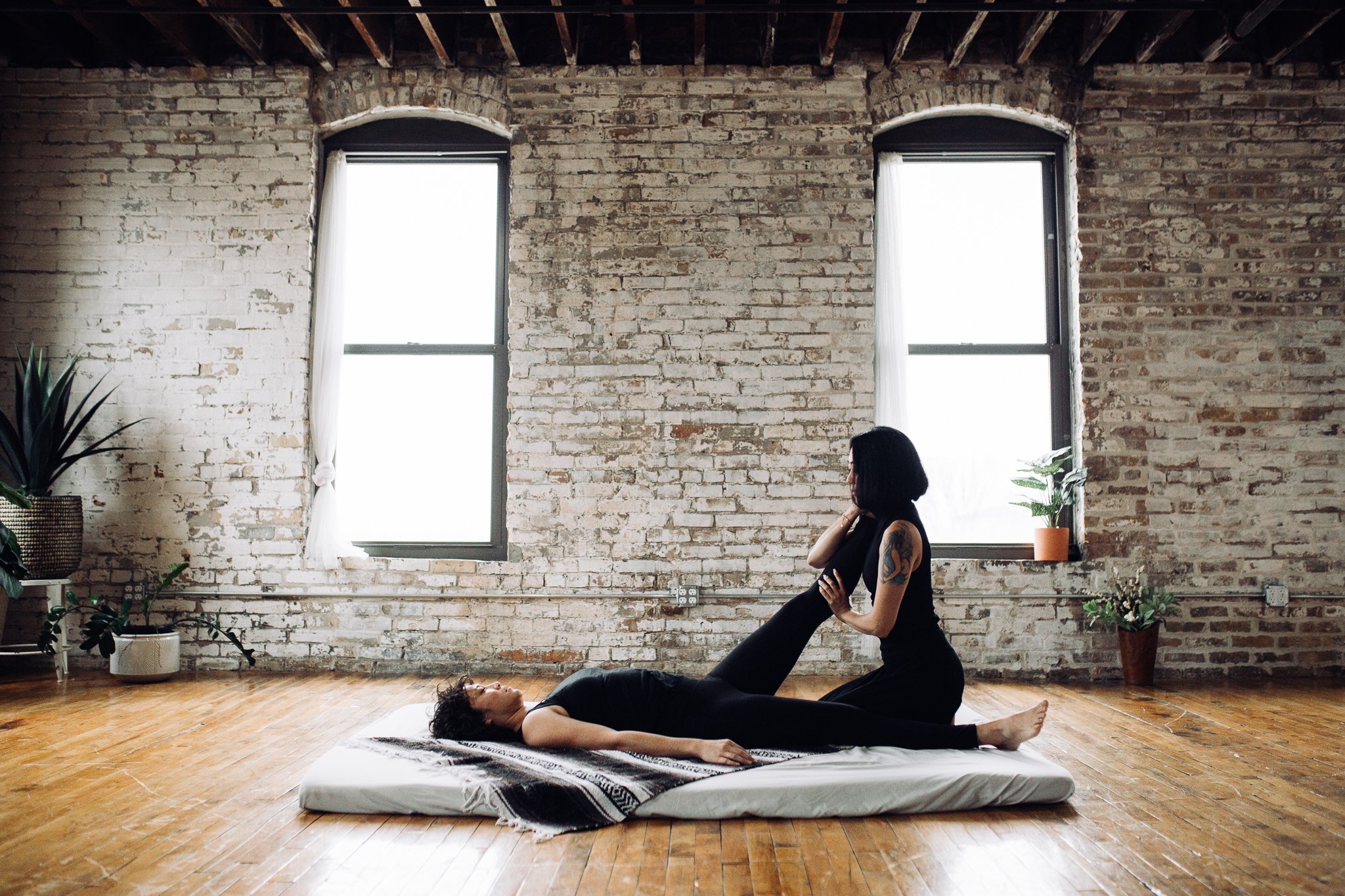The Problem With Contemporary Wellness Culture
Do you use social media? Or own a TV? If so, you’re probably bombarded daily with content on how to make yourself healthier, calmer, less stressed, and more mindful. But even though our society seems to be experiencing a “wellness” craze, there are multiple, interconnected problems in the modern wellness industry keeping us unwell.
Don’t get me wrong—those are all worthy states of being to strive for. However, we must pause and consider whether these ideals align with our current Western culture and lifestyle.
As a matter of fact, let’s stop for a second. Let’s sloooooooow everything down.
First, take a moment to feel your feet on the ground. Please take five belly breaths, really feeling the breath move throughout your body.
When you’re done, shake out your head and neck and do a few shoulder stretches and neck rolls.
How does your body feel now? Do you feel a greater sense of presence and grounding? Try to notice without judgment.
If at any moment you feel you need to step away, this article will always be here. If you find your body responding in a way that feels overwhelming, take some time to rest or pause until you feel better regulated to take in this information.
I believe that while many of us recognize the effects of colonization, systemic racism, capitalism, and trauma, we often fail to grasp how profoundly these acts have impacted every facet of our daily lives—from how medicine is practiced in our society to how we view health and well-being in general.
Let’s address what I see as the three core wounds that ultimately get in the way of our individual and collective long-term healing.
1. Forgotten historical context
Many of the mind and body practices now popular in the West, such as mindfulness, meditation, and yoga, are rooted in South Asian and Eastern Asian traditions. We can trace that back as far as Alexander the Great’s Indian campaign in 327 to 325 BC. [1]
For those of us who reside on American soil, it’s key to remember that there were other intact, long-term, sophisticated cultures that were here before us. These cultures' wellness practices were sanitized and largely forgotten due to colonization's effects, resulting in racially hierarchical healthcare policies and systems still in place today.
However, in doing so, the new inhabitants of this land also lost essential knowledge about the local ecosystem, the health benefits of the plants in their yards, and how to live within Nature, using its wisdom to better our individual and collective lives.
2. Separation of the mind-body-spirit connection
As you can see, with colonization comes loss, and therefore, an eventual separation. Just like when playing a game of telephone as a child, each generation compounds that loss when more and more people forget. This creates gaps: in our knowledge, understanding, and comprehension of the richness of using what is around us for healing and health.
Many of our ancestors were forced to assimilate or die and also dealt with other forms of trauma such as war, poverty, and conflict. Oftentimes, they came here alone and without extended family. While in survival mode, there is little energy for maintaining cultural connections, and earlier generations often had no choice but to conform to Western ways, as their personal safety was at risk. The goal of colonization is to erase cultural identity and encourage fear. After all, if the people could heal themselves, how would they be controlled?
This still exists today in the form of structural racism, in current studies, we can clearly see that race is a significant factor in poorer health outcomes than when compared with white-bodied people’s health and access to health.
Because of the separation of mind, body, and spirit, the Western biomedical model only serves the physical side of medicine. This is wonderful for surgery, but not so much for utilizing skills that deal with the impacts of unresolved and unprocessed emotions, the lack of communal support when dealing with financial burdens, or trying to move past historical and ancestral trauma that impacts you and your loved ones in the world today.
3. Prioritization of self-care over community care
In our hyper-individualistic culture, it can be difficult to live more communally and connect with one another. However, I believe that it comes in moments of suffering.
Think about when a loved one passes on. People come together and offer food, a comforting ear, hugs, shared tears, and opportunities to remember the moments of joy this person has shared with you.
This instinct is rooted deep within us. We were always meant to live and collaborate with one another. It’s our birthright to be supported, loved, and heard by our peers, as a community oftentimes mirrors back to us our own stories and struggles. This helps us “see” each other in more meaningful ways.
Without community support, without a village, we are ignoring an intrinsic piece of what ensures health, physically, emotionally, and mentally.
A person can do all the “right” things—go to their weekly appointments, eat a healthy diet, or work with a psychotherapist—and still not be experiencing connection in their daily lives. They may feel unrecognized by their peers and loved ones or be struggling in an unfulfilling partnership. If they are not able to process the emotional side of life in trusted and safe spaces, illness may eventually come.
We have forgotten what has been lost due to colonization, and we fail to see the ways in which we have attached ourselves to the colonizer’s medicine. Inevitably, when we try to focus in, we lose the bigger or more whole picture of what’s happening to us as a collective society, as well as in our homes, workplaces, and personal lives.
Emotions affect our health, and to not accept that is a denial of the reality that we live in. Without ways to support this side of ourselves, we will continue to replay unhealthy generational patterns of wounding that do not support us, the planet, or our families and loved ones.
I propose that we interrupt these patterns and start to collaborate as practitioners of health. We are not supposed to be separated. It is in our clients’ and loved ones’ best interests if we all start to teach each other our different ways. I imagine a space in the West that teaches Indigenous and ancient ways of listening, holding space, and diagnosing to Western medical students. Sharing knowledge is a way to prevent miscommunication and increase connection. Let’s start building bridges.
If you’d like to support my goal to offer care to historically marginalized communities in the Minneapolis, MN, area, please consider contributing to my Pay it Forward program. Venmo @collectivewellnessmn, and please write ‘Pay it Forward’ in the subject line.
Next steps + how to support
As I grow my business, I am asking for financial support. If you would like to contact me directly, please email me at rebecca@collectivewellnessmn.com. I also accept Venmo (@collectivewellnessmn) or PayPal donations, under ‘Collective Wellness LLC.’ Any amount is received with gratitude. In the subject line, please write either ‘Pay-it-Forward’ if you’d like to support the community by paying for someone’s care, or ‘Restoration’ if you’d prefer it goes toward the goal of building a physical space for Collective Wellness LLC.
Book an individual 1:1 integrative bodywork session for yourself or someone you know would benefit.
Think about the myriad ways that policy laws in healthcare shape our current landscape. These laws are often serving the majority and perpetuating systems of disease and illness. In her book Just Medicine: A Cure for Racial Inequality in American Health Care, Dayna Bowen Matthew outlines it better than I ever could and also offers structural solutions that could powerfully impact our children and their families as we move into the future.
Think about a time when you may have felt unheard or unseen when seeing a provider in your lifetime. This exercise is not meant to cast blame or cause unnecessary stress, so please partake when you are feeling grounded and safe. It’s only to get you engaged with what happens in your body as you are thinking about these moments of inhumanity. When we can empathize with others who are experiencing oppression, we are more readily able to take action in the moment, which causes the pattern to be potentially disrupted. Knowing how it hurts to feel unwitnessed and unsupported, we are more likely to understand when it is happening to others, thereby taking action.
Any true change starts with an individual, so I encourage you to take time to think about ways that you can dismantle your own conditioning so that you are able to meet a diverse group of people in your life. This will only benefit everyone, as the ripple effect becomes stronger than the initial resistance you may feel in the face of inner change. When we start to release old stories, we are able to show up in the present, connecting with what is coming up in ourselves and acting accordingly. Our relationships become deeper, more fulfilling, and more honest. We are able to truly support one another, offering from a full cup rather than an empty one.
Lastly, I encourage you to join a community that supports your insecurities, perceived flaws, or personal identities. When we can see ourselves mirrored in others, we are able to experience validation and connection. These traits add power to our individual efforts, they are the ingredients needed for long-lasting meaningful change.
Here are a few essential books to support your understanding on this path:
Just Medicine: A Cure for Racial Inequality in American Healthcare by Dayna Bowen Matthew
Emergent Strategy by Adrienne Maree Brown
The Arts of Indigenous Health and Well-Being edited by Nancy Van Styvendale, J.D. McDougall, Robert Henry, and Robert Alexander Innes
Please use the exercise shared in the introduction of this post often throughout your day to check in with your body. Practice sitting in discomfort with your breath deep and your feet planted firmly on the ground. Allow your emotions to shift and change without attaching yourself to the outcome. These tools are free and accessible ways to bring health into your everyday life, and they cannot be taken away from you.





